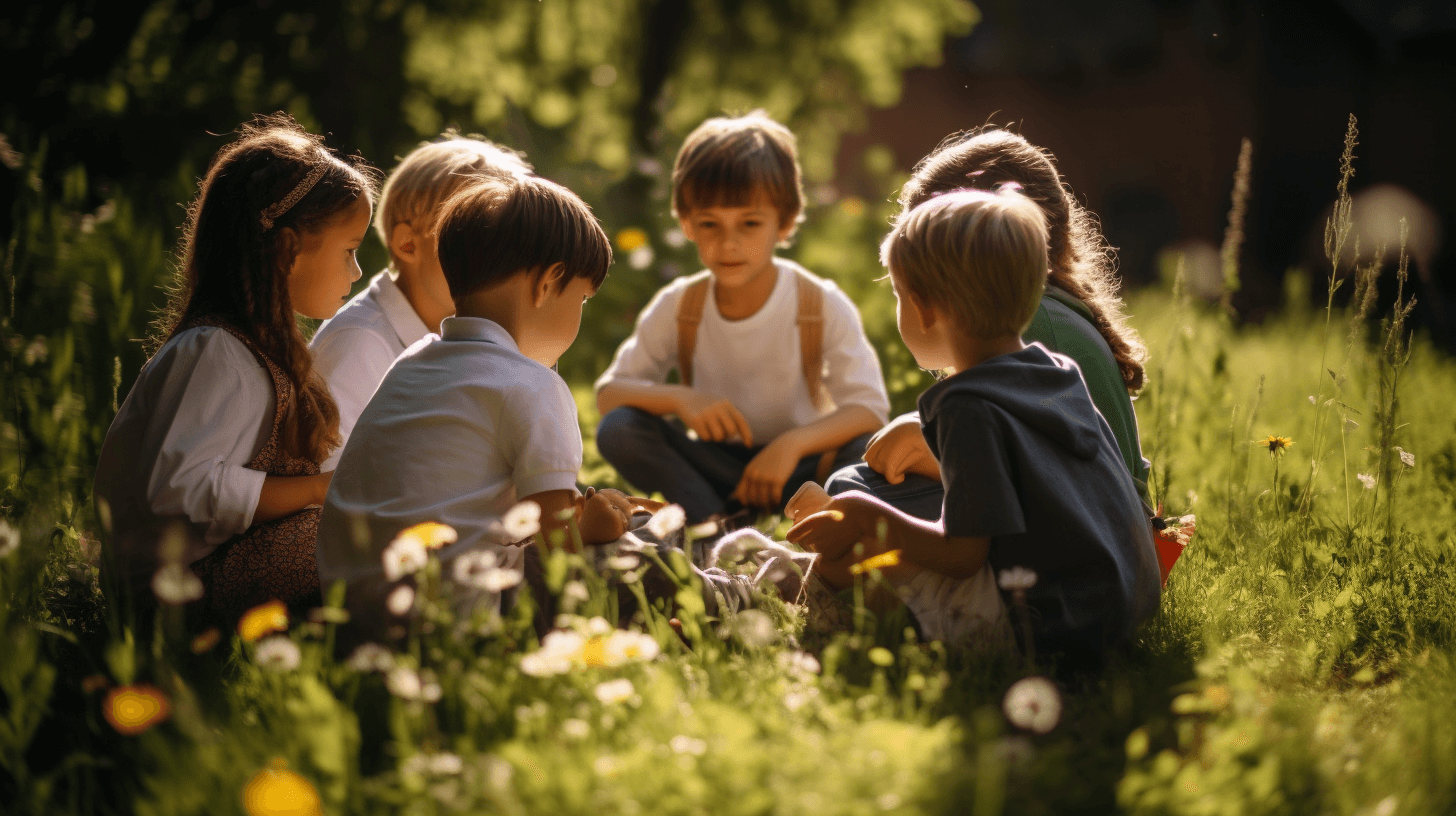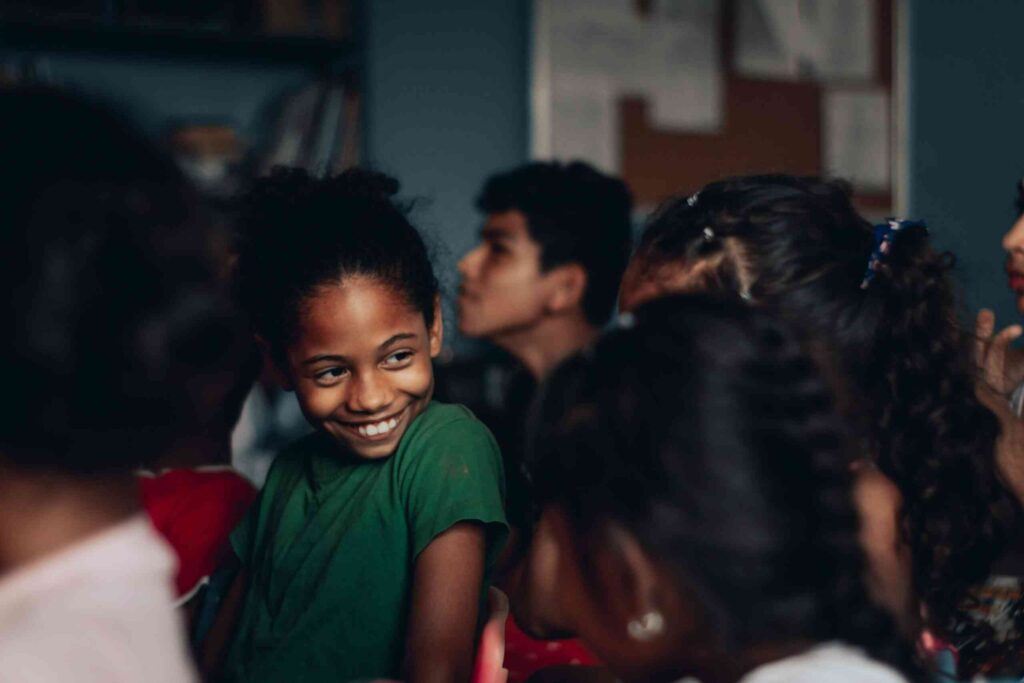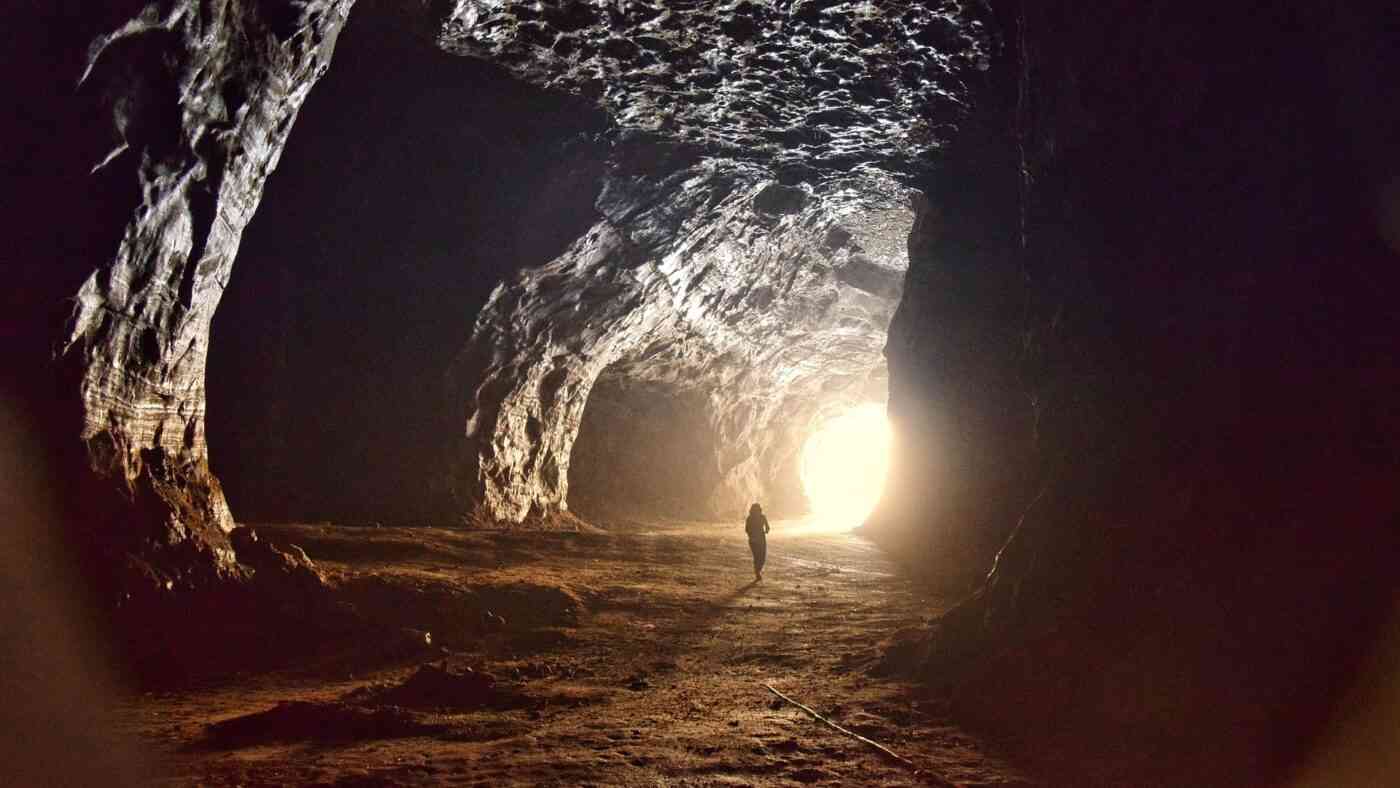Science
Humanity’s Oldest “Business Card”: This Human Handprint Is Nearly 68,000 Years Old
03 February 2026

Transforming schools and shaping a peaceful future – Anita Czupryn talks with Edward Skubisz, educator, volunteer and coordinator of the “School of Dialogue”, about the values and inspirations of this program, which becomes the key to creating a better future in education.
What is education for peace? What did it grow out of and what was it inspired by?
Education for peace is a comprehensive concept, covering various areas, which aims to act effectively in conflict situations in small groups. But that is not all. The idea also includes reading, watching and analyzing the testimonies of survivors of the occupation and genocide, as well as reflecting on what is happening on the fringes of the European Union. It could be said that it is a kind of civic education in the spirit of courage.
In Poland, an example of education for peace is a program called the “School of Dialogue”. The prototype of this program was developed in the Netherlands by the CED Groep (Editor’s note – it is this institution which created the project a dozen or so years ago) and it was introduced to schools in Utrecht 15 years ago. Initially inspired by Janusz Korczak’s experiences, the program is constantly being improved. Currently, it is implemented in more than 1,250 Dutch primary schools and encompasses children aged 4 to 12. More importantly, the number of facilities is constantly growing.
How did you get involved in promoting this program?
My engagement stems from a variety of experiences and changes in my life. Previously, I worked as a catechist in the Netherlands, where I trained teachers who wanted to conduct religious education lessons. I felt limited somehow, and these barriers resulted from the fact that religion was treated as a separate field – it did not have much influence in teaching other subjects. In the Netherlands, there is a completely different situation than in Poland when it comes to culture and religion. Once a year in Catholic and Protestant churches we celebrate the Week of Peace. In connection with this event, I ran a project for schools of various types. It was not focused solely on religion, the story of Moses, Mary or Jesus, but on peace as such, that is, on how different people can live together. This prompted me to seek a holistic approach to education for peace. I started working with the Anne Frank House Foundation.
It is based in Amsterdam and runs a museum in the place where Anne Frank hid from the Nazis and wrote her world-famous diaries. In addition to the museum, the Anne Frank House Foundation has been involved in educational activities aimed at counteracting discrimination and inequality for over 50 years.
Going to schools with the Anne Frank exhibition, I saw how the story of this young girl from the Holocaust period captures the attention of students and opens the door to conversations about tolerance, respect and understanding. I have decided to use this history as a starting point for the realization of a program that would cover wider social and democratic issues.
When eight years ago I noticed what changes were taking place both in Polish politics and in the field of education, I saw a threat to the fragile foundation which is democracy. At that time, I felt determined to take long-term action within this program.

What are the objectives of the “School of Dialogue” program?
The objectives of the “School of Dialogue” program are multi-layered and include the transformation of the school into a democratic community in which both students and teachers learn to constructively resolve conflicts and assume responsibility for the functioning of the school community. An important goal is also to introduce a holistic approach to school culture, encompassing values such as cooperation, accountability and democratic principles.
How does the program affect students?
Thanks to the “School of Dialogue”, students learn responsibility for their actions and acquire the skills of cooperation and democratic coexistence. As a result, we create schools which are characterized by harmony.
How is this program implemented in Poland?
The “School of Dialogue” was introduced in Polish kindergartens and primary schools in 2019. In cooperation with the Dutch institution CED Groep and the Anne Frank House Foundation, we have adapted lesson plans to Polish conditions and core curricula. Thanks to this, we managed to build a network of contacts, and schools began to show confidence in the program. Testing of the “School of Dialogue” began in Lower Silesia as part of the Krzyżowa Foundation’s activities. Thanks to the positive feedback that was passed on by word of mouth, we visited several municipalities where we started talks with the mayors and the councils. Some councilors proposed to test the program, and currently it is implemented in eight facilities, including kindergartens and primary schools in Wrocław and the surrounding area. In this way, the program continues to develop and its implementation is supposed to take place in stages within two years. The process began with the training of the pedagogical staff, who gradually introduced the program into their classes, presenting subsequent topics. The program consists of six thematic blocks, which are addressed annually at different levels in each class.
What do these blocks consist of?
The first block is called “We are together” and focuses on the formation of the group. The theme is the constitution, but during lessons with children aged 3–7, we avoid using this term. We start by asking how we can begin the school year so that our actions are good and positive for everyone. In this way, children propose and set rules, which develops a sense of responsibility in them. Even the youngest children can engage in this process and feel responsible. The second block is “We resolve disputes ourselves” and focuses on talking about specific situations in which conflicts may arise.
How do children learn to resolve conflicts between themselves?
Conflicts are a natural part of life and can result, for example, from borrowing a pen that is needed at a given moment. Children learn to ask for the objects they need and to set their boundaries. The program develops soft competences such as expressing needs and setting limits. This process is gradual and systematic, repeated every year within various thematic blocks, such as “Let’s listen to each other”, “Let’s express our messages” or just “We solve conflicts”. The fifth block is a preparation for the sixth. It concerns the differences between us and emphasizes that each person is different, which is our wealth. In this block, we also focus on well-being. It is important that the person who often hears that they are worthless knows that this is not true. Each of us is responsible for one’s actions and should defend what they do and what they can do. This is important both in the context of the relationships between students and between teachers.
Is there cooperation between students and teachers?
In the program, we emphasize that the most important thing is that teachers teach children how to solve conflicts, but teachers themselves should avoid conflicts with each other in the corridors, otherwise it could be perceived as hypocrisy. What happens to teachers has an impact on children. We place importance on cooperation and mutual activities both between students and between teachers to create a coherent school community.
Read also:
What distinguishes the sixth block?
The final sixth block of the program concerns the diversity and uniqueness of each individual. We focus on anti-discrimination exercises that aim to make students aware that each of us has different beliefs, religions, ideas, interests, skin color and upbringing in a different culture. Even if we look similar and come from the Catholic Polish community, we are still unique individuals. It is important that we do not discriminate against others and treat each other with respect. Each of us has something valuable to offer, and we are responsible for our attitudes and behavior. To sum up, the “School of Dialogue” program develops social and emotional skills such as recognizing and coping with feelings, constructive conflict resolution, taking the initiative, active participation and cooperation, openness to diversity, mutual respect and awareness of the impact of our actions on others. This program helps to build self-confidence and a positive self-image.
What happens after two years of this kind of school classes?
When the trainer recognizes that the teachers are ready, then they start conducting the program on their own. Of course, there are other important aspects as well, but the core of the program is those six topics that are present in lessons in all age groups, including classes for preschoolers. In addition to intensive teacher training, classroom observation and coaching, there are also workshops for parents. All these elements are important for the full implementation of the program. A critical component is also the peer mediation program for older students and teaching about human rights, tolerance, democracy and mutual respect. Classes are held once a week. Not only is their frequency important, but also the atmosphere and building responsibility. What children learn in these classes also affects other lessons. For example, a teacher of mathematics or another subject who knows the program can use it if students behave inappropriately. The teacher knows how to correct their behavior and continue teaching in accordance with the values of the program. The whole atmosphere refers to the idea of Janusz Korczak, who emphasized that the child is a human, not an object.
What are the main challenges you faced during the implementation of this programme in Polish schools?
The most difficult moments occurred when there was no way possible to reach schools because the pedagogical staff opposed the program from the very outset. The reason may have been difficulties in resolving conflicts between teachers or problems that occurred at the level of the school management. Sometimes we had to make the decision that in such a situation we could not introduce the program to the school. There are facilities where this program is implemented with great success, it can be said that the match is like bread and butter. Naturally, we encounter difficulties, but there are also places where it is difficult. If the school has too many responsibilities and teachers participate in different projects, they become overloaded and do not have time for a talk, evaluation or preparation. As I mentioned, part of the program is the observation of teachers during each lesson by the trainer, followed by feedback, i.e. a conversation about progress assessment. However, it is also important to create a steering or helping group. The group consists of a director, a psychologist, and teachers of the younger and older classes. Together they form the foundations of this programme. When a trainer leaves after two or three years, this group ensures the continuation and stability of the program at the school. The idea itself does not end, but it requires teachers to take the time to participate in such a steering group. Sometimes it is also about the motivation or conviction of teachers.
Can you give examples of successes and positive changes that have been achieved thanks to this program in Polish schools?
Of course, I have many examples of these positive changes in Polish schools. But, by the way, I would like to note that for me a certain difficulty is caused by hierarchical culture, which is very clear in Poland. Although this kind of hierarchy exists everywhere, it has stronger roots in Poland, perhaps because of the years of communism in this country. Do you remember that during our first conversation, I asked you to get onto first-name terms?
Is addressing each other “pan” or “pani” (“sir” or “madam”) in Poland a part of a hierarchical culture?
I would not like to describe it in such a categorical way, but I must admit that as a Dutchman with Polish roots, I feel a bit strange when my colleagues in Poland call each other “pan” or “pani”. Here, as I have noticed, even a stomatologic assistant still uses the phrase “pani doktor” even after many years of joint daily work. I have to admit that I feel uncomfortable in such situations, but maybe I am too “Dutch” in this matter.
Let’s go back to the achievements and changes that have taken place thanks to the program in Polish schools…
In some schools, we see that we have strengthened soft skills in both teachers and students, as well as in the relationships between teachers and students. Thanks to this, not only do lessons become more effective, but also other areas of education begin to develop. We see less aggression in schools, teachers have more time and peace while conducting classes, and students feel better motivated. All this is visible. However, the most important thing when we talk about democracy is the fact that in the school, a community is formed in which all students are involved. Everyone is responsible for their actions, and that is the essence of democracy.
What are the long-term goals of the “School of Dialogue” program?
It is worth noting the social results that we can achieve thanks to this program and what expectations are set for it. I would like to be able to take you to the Netherlands so that you can see with your own eyes how successful this program is. There are already 1,250 schools working with it and new ones are joining. We have an amazing effect that goes beyond the boundaries of these particular facilities. Recently, in Utrecht, a large city in the Netherlands, a ‘peaceful municipality’ was introduced by the local council. In Poland, we are also observing the long-term effects of the program. Children who have learned the peaceful resolution of conflicts at school can transfer these skills to a home. Parents are surprised.
Can we say that children are educating their parents?
Yes! Parents receive letters with information about what children learn in class. This fosters better understanding between parents and teachers. Gradually, we see that it works. We plan to expand the scope of activity of the program on a larger scale. However, one of the main challenges is financial issues. Naturally, trainers expect remuneration for their two-year and sometimes three-year work. We also have costs related to organization, translation and coordination.
Where do the financial means for the implementation of this program come from?
Initially, we received funds from the Netherlands, donated through the Dutch embassy, and support from the Polish civic program. That was four years ago. We are currently looking for further funding sources and supporting municipalities. For example, the municipality of Długołęka finances the work of a trainer in two of its schools. The municipality of Wrocław helped us, but we still face challenges when it comes to finances. However, we have an ambitious development plan which assumes the expansion of the program by another ten schools each year. Thanks to this, we will be able to proudly talk about our contribution to building democratic schools in Poland.
Edward Skubisz
Dutch social theologian with Polish roots, catechist and trainer combining religion, culture and education, populariser of science, and founder of the “Dom Pokoju” (“House of Peace”) Foundation. Cooperates with the Anne Frank Foundation (Amsterdam) and the “Krzyżowa” Foundation for Mutual Understanding in Europe. A member of the periodical “Tygodnik Powszechny” Club in Wrocław. Deals with the heritage and updating of the works of Wrocław theologians – Dietrich Bonhoeffer, Edyta Stein, Benno Jacob and Katharina Staritz.
Science
03 February 2026



Zmień tryb na ciemny